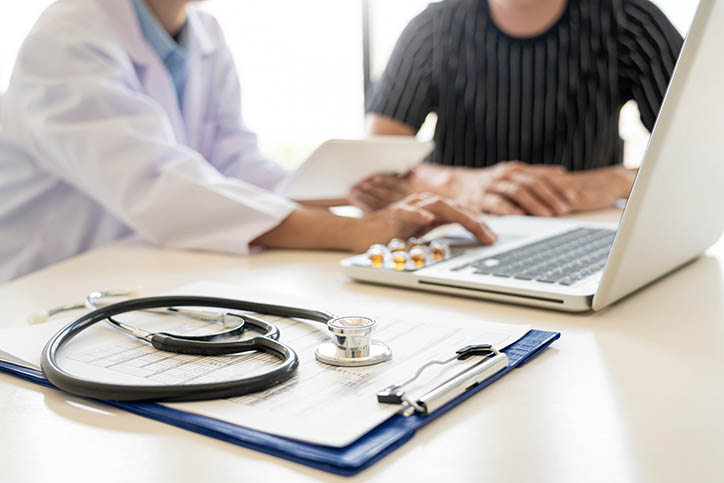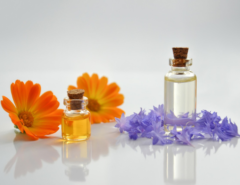Do you take medicines? Are you a caregiver to someone who takes medicines? If so, medicine safety is important for you! About 60% of the cases managed by the Maryland Poison Center (MPC) in 2018 involved one or more medicines. Below, we discuss how you can be an active participant in your health care, as well as how caregivers can play an important role in medicine safety.
Medicine List
Anytime you’re at a medical appointment, be sure to discuss your medicines with your doctors. Each of your health care providers should know about all of the medicines you take, including prescriptions, over-the-counter (OTC) medicines, vitamins, and supplements. Keep an up-to-date list of all of the medicines you take, and bring it with you to all of your medical appointments. We have an example of a medicine tracker to use. Having a complete medicine list will help your health care providers prevent interactions between medicines they may want to prescribe and those you are already taking.
Prescriptions
When you refill prescriptions, make sure to allow enough time for your pharmacy to fill the prescription and for you to pick it up, so that you don’t run out of medicine. Missing doses for some medicines can be harmful. Some pharmacies offer automatic refills, which can be very helpful. Ask your pharmacist if they do automatic refills, as this could help ensure that you get your prescription(s) filled on time. You might also be able to mail-order some prescriptions, too. No matter how you get your prescription filled, always be sure to read the entire label before taking the medicine.
OTCs, Vitamins, and Supplements
It is important to include all of the medicines you take on your medicine list. People often think that OTC medicines are safer than prescriptions, but that is not true. OTC medicines and supplements can interact with your prescription medicines, as well as other OTC medicines. Always read the label of any OTC medicine, vitamin, or supplement you take, including the warning section. It may have a warning for one or more of the prescriptions you take. You can also ask you pharmacist to review your medicine list for possible interactions.
Medicine Storage
Keep all medicines in their original, labeled containers. If you prefer to use a pill minder, make sure it is stored up, away, and out of sight from children, pets, and curious visitors. If there are multiple pill minders in one household, get different colors for different people, or label them with each person’s name to ensure they do not get mixed up. Do not use plastic baggies to store your medicines. It is easy to forget which medicine you put in the baggie. Medicines also often look different when they are refilled. Keeping medicines in their original, labeled containers prevents potential medicine mix ups.
Questions? Ask!
If you have questions, don’t guess! Ask your doctor, pharmacist, or the poison center. We have the answers. If you don’t know why you’re taking a medicine, how much to take, what time of day to take it, or if there are any restrictions, ask your doctor. Some people even find it helpful to write down a list of questions that they want to ask the doctor before going to a medical appointment. This ensures that you don’t forget to ask a question in the short time you have with your doctor during an appointment. If a pill looks different when you pick up your refill, ask your pharmacist or the person giving it to you if it’s the right medicine. If you start a new medicine, ask your doctor if you should stop any of your other medicines. Call the poison center if you think you took an extra dose or if you are having an adverse effect from a medicine. You should also call the poison center if you can’t remember if you took your medicine. We can let you know whether it is best to skip the dose or take it again.
Safe medicine use is a shared responsibility between you, your doctor, your pharmacist, other health care professionals, and in some instances, even a family caregiver. Follow these tips to ensure that you’re taking or giving medicines safely. If you or someone you know has made a medicine mistake, call the poison experts right away. Don’t wait for symptoms. Call 1-800-222-1222.





Leave a Reply